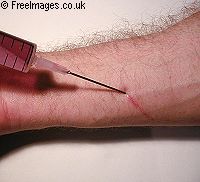More pharmaceutical research and innovation needed, says WHO
The EU must play a leading role in public health and look to close the 'pharmaceutical gaps' that exist today, says a new report by the World Health Organisation (WHO), which lists the illnesses that the pharmaceutical industry should investigate most urgently. The report, 'Priority Medicines for Europe and the World', was commissioned by the Dutch EU Presidency, and was discussed at a high level conference in The Hague on 18 November. The report sets out to identify 'pharmaceutical gaps', diseases for which effective treatments are lacking, and for which research should be prioritised. The WHO identifies 17 conditions requiring urgent attention. They include pandemic influenza, cardiovascular diseases, depression, paediatric HIV/AIDS, Alzheimer's, diabetes, cancer and tropical infectious diseases such as malaria. The report also defines a priority list of medicines that should be developed to tackle the world's most pressing health requirements. 'Pharmaceutical research and development are based on a market-driven incentive system relying primarily on patents and protected pricing,' says the report. 'As a result, a number of health needs are left unaddressed.' 'Little effort is made to determine 'value for money' for pharmaceutical innovation,' adds the report. This, in turn, leads to a lack of medicines in key areas that could make a difference to people's lives and save large amounts of money in medical costs. Developing flu vaccines is one of the priorities of the WHO, which recommends policies to encourage the production of drugs to treat a disease it considers has been overlooked. The EU has allotted less than four million euro to support influenza vaccine research, says the report. The US has spent between 50 million dollars (38.3 million euro) and 100 million dollars (76.6 million euro) but even that is 'modest compared with investments in developing vaccines for other diseases,' adds the report. Among specific recommendations is a call for increased use of fixed-dose combinations (FDCs) -- medicines combining two or more drugs -- particularly for preventing cardiovascular diseases. Another proposal is to develop new approaches to treat bacterial infections, as antibiotics are becoming increasingly ineffective. The report also points to changing patterns of disease due to an ageing population and warns that chronic illnesses common in Europe such as cardiovascular diseases, smoking-related problems and diabetes are now spreading to developing countries. Following the presentation of its report at the Dutch Presidency conference, the WHO will direct its recommendations to policy makers (Commission, Member States), the European Investment Bank (EIB), industry and all other relevant stakeholders. Items for consideration at the conference are the selection of priority areas, population groups, delivery mechanisms, types of research, technology platform, the Seventh Framework Programme (FP7) and small and medium-sized enterprises' (SMEs) involvement, added the Dutch ministry. 'Our objective is to provide elements for a well-founded research and development (R&D) agenda for the research and development of medicines, vaccines and biologicals, which meet the real needs of European citizens,' explained the ministry. 'We aim to promote research, more driven by public health needs than just market considerations. Research for this must become a priority. By striving for innovation in public health, we aim to boost the competitiveness of European industry.' 'The research agenda can serve as input for the Seventh Framework Programme, in which it should be firmly embedded,' concluded the Dutch ministry
Countries
Netherlands



